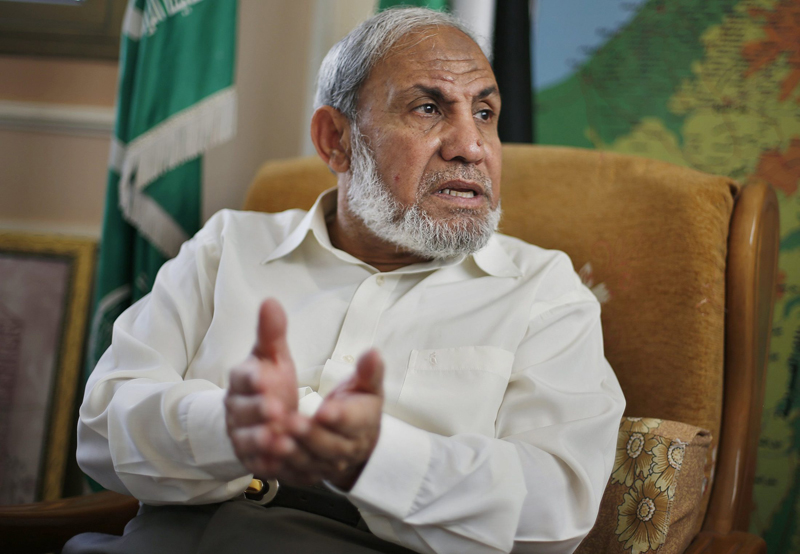Australia/Israel Review
Scribblings: New evidence on Arafat and Hamas – but it won’t help
Jan 30, 2015 | Tzvi Fleischer

Tzvi Fleischer
I have written here before about the overwhelming evidence – from Palestinian sources – that the very violent second intifada launched in September 2000 was not a spontaneous reaction to Ariel Sharon’s visit to the Temple Mount, as the media continues to portray it to this day.
It is very clear that then-Palestinian leader Yasser Arafat had begun planning a major outbreak of violence long before then – according to testimony from Palestinian ministers, and from his former aides, and to documents captured by Israel in Arafat’s compound, and even according to his widow, Suha Arafat, who recently said Arafat warned her he was going to launch violence some weeks before it actually broke out. These sources say that he began preparing to cause an outbreak of violence – including terrorism, much of it with the participation of Palestinian security forces – shortly after returning from the July 2000 Camp David Summit, where Israel offered the Palestinians a Palestinian state in the West Bank and Gaza for the first time ever and Arafat said no.
Now there’s yet more evidence that Arafat involved Hamas in his planned outbreak of terrorism and even provided the group with arms to carry out attacks. Senior Hamas official Mahmoud al-Zahar, in an interview published by the Palestinian News Agency on Dec. 15, 2014, had this to say about events in 2000:
Abu Amar [Palestinian Authority Chairman Yasser Arafat] reached the decision that the negotiations at the Camp David summit [in July 2000] were going nowhere. He sent a security representative to Sheikh Salah Shehade [head of the Hamas military wing at the time] with the message: ‘I have no objection to Hamas taking action’ and we knew [what this meant] when we met to go over details….We received arms from them [the PA] and carried out the acts [terror attacks].
[In response to the interviewer’s question, not clearly audible, about the source of the weapons]:
‘[We got the weapons] from Fatah here [in the Gaza Strip], from the [then Palestinian] Authority here [in the Gaza Strip]… We took those weapons from them and carried out the acts [terror attacks].
(Translated by the Middle East Media Research Institute, MEMRI, www.memri.org).
This is actually not the first time that Zahar has said Arafat coordinated with Hamas to launch attacks in 2000, but it is the most detail he has offered, and the first time he has said that Fatah gave Hamas arms to carry out attacks.
It thus adds not only more evidence about what happened but another piece of the puzzle about the extent to which Arafat went to orchestrate terror. Nonetheless, I doubt it will make any dent in media or public perceptions of what happened. The media cast the intifada at the time as something caused or at least “sparked” by the Sharon visit to the Temple Mount (and it is even increasingly common to hear claims that Sharon entered the Muslim shrines there, which he definitely did not do – no Israeli political figure has even done that.) This is no doubt what Arafat intended when he used the visit as a pretext for launching his already planned wave of violence. Sadly, it worked extremely well and it seems that, for most journalists and non-specialist pundits, there is no evidence in the world that will shake the narrative created by the media reporting back then.
“Proud to be Israeli”
I have also repeatedly written in this space about polls of Israeli Arabs which seem to decisively knock on the head any suggestion that they believe that they are living in some sort of “apartheid state” – as is frequently charged by Israel’s extreme critics.
Here’s a doozy of a poll released by the Israeli Democracy Institute to mark the start of 2015. In the poll, fully 65% of Israeli Arabs said they were either “quite” or “very” proud to be Israeli. That’s up substantially from the 50% the previous year. That’s right, almost two-thirds of the supposed victims of Israel “apartheid” say they are proud to be part of that “apartheid” state.
Plus, there’s more. Sixty-four percent of Israeli Arabs said they usually felt their “dignity as a human being is respected” in Israel “quite a lot” or “very much” – so if there is endemic racism in Israel, obviously they don’t see it. Meanwhile, 57% of Israeli Arabs said they had confidence in the Israeli police – that’s higher than for Israeli Jews – and 60% said they had confidence in Israel’s court system. So they obviously do not feel that there is legal discrimination against them.
Furthermore, nearly 57% of Israeli Arabs said they had either “quite a lot” or “very much” confidence in the Israeli Army – an Army that is often portrayed, especially in Arab media, as a brutal occupier of Palestinians violating the human rights of Arabs – right, left and centre.
One caveat is that this data is somewhat old – the survey was done last April and May before the latest Gaza war, so current results might be somewhat lower. Nonetheless, it is a stinging indictment of all the “Apartheid Israel” tropes often bandied about by Western sympathisers and activists. People who actually know what life is like in Israel based on their own experience rather than from one-sided propaganda spread by anti-Israel networks are repeatedly making it clear that the activists’ claims are at best a gross distortion.
Tags: Israel






